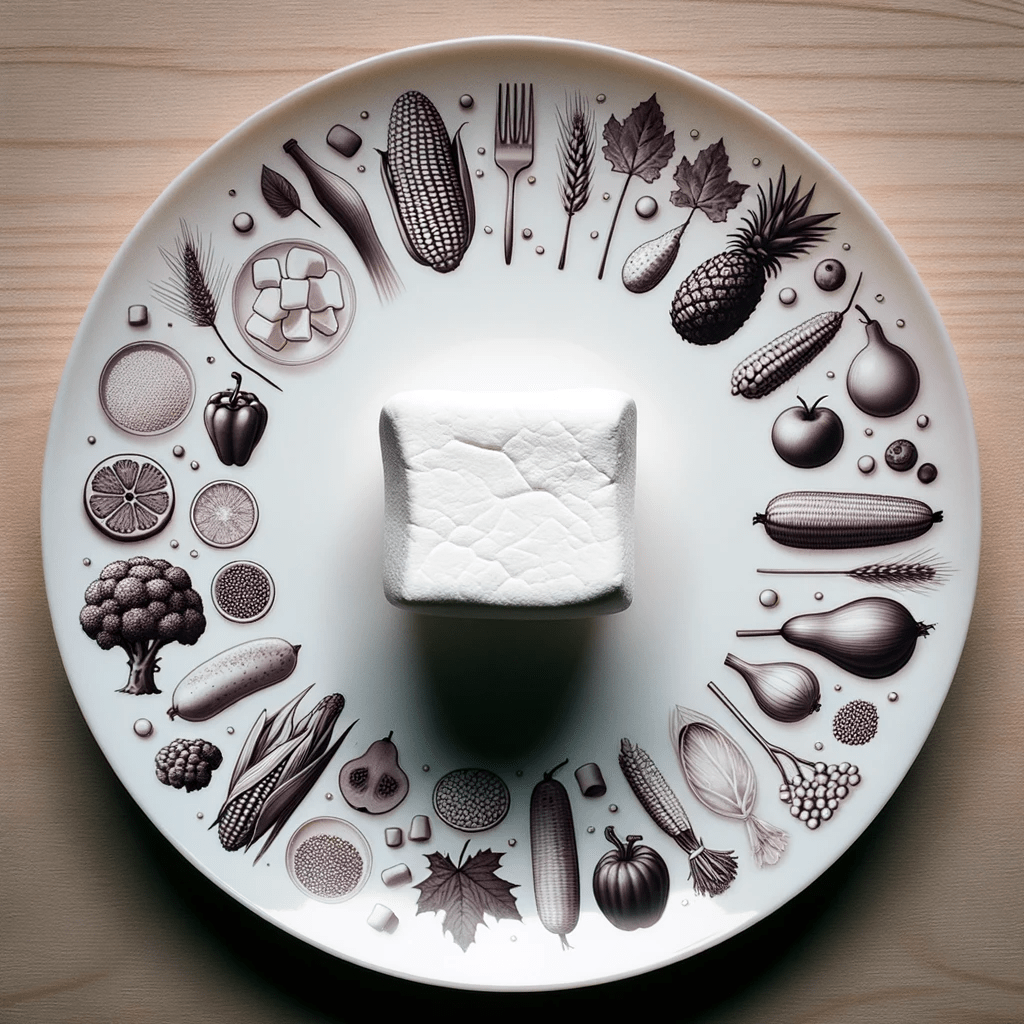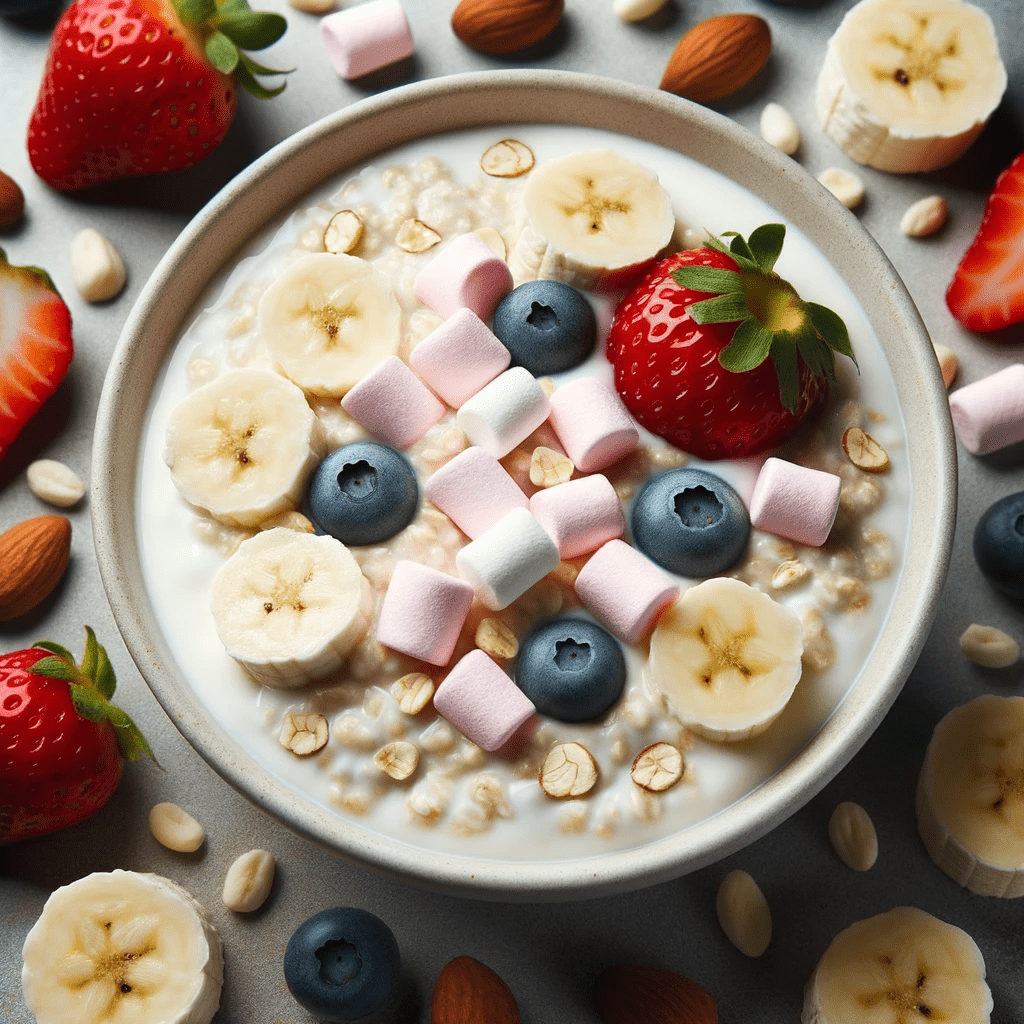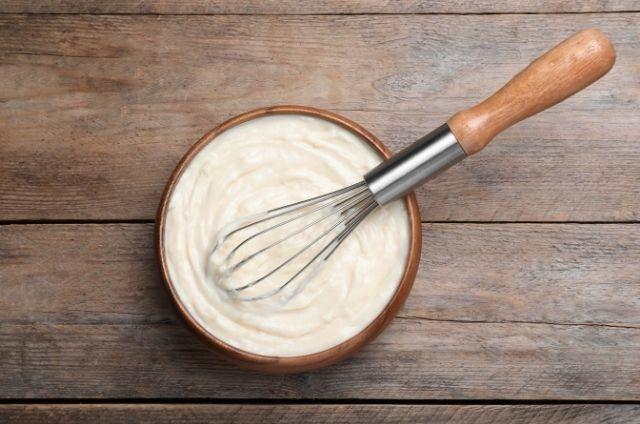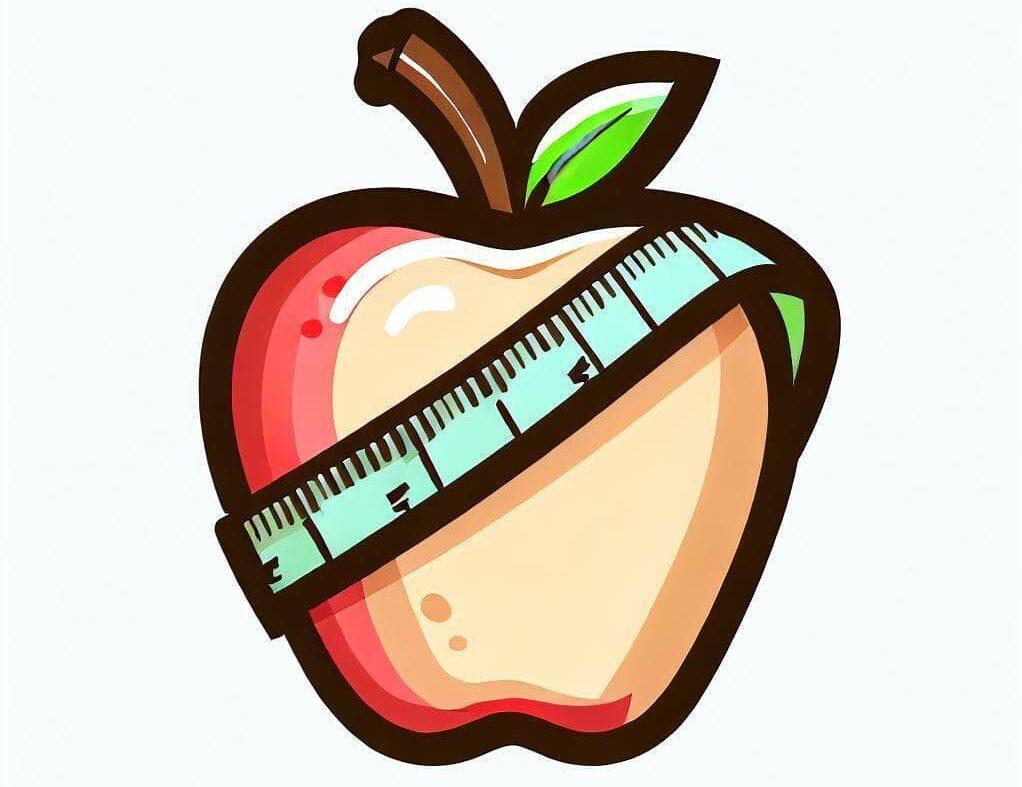Is Marshmallow Good for Weight Loss?
This post may contain affiliate links which means I may receive a commission for purchases made through links at no extra cost to you. See my disclosure policy for more information.

“Is marshmallow good for weight loss?” No, marshmallows are not good for weight loss because they are high in sugar and contain no nutritional value that can help you lose weight.
I came across many articles saying that because marshmallows are low in calories, you could eat them and still achieve your weight loss goals. This is not true.
While the low-calorie part may be true depending on the type of marshmallow, the high sugar content in it completely overshadows the supposed low-calorie benefit. P.S. Weight loss is much more than calories in and calories out.
Being a nutritionist myself it’s my job to educate people with the right information about food.
So in this article, I will be doing a deep dive into marshmallows and weight loss, from potential benefits (if any), to downsides (many) and tips to add them safely to your weight loss diet.
Nutrition Facts of Marshmallow
As per the USDA, 4 pieces of marshmallow from Baker’s Corner provide the following nutrients:
Serving Size: 4 pieces (30g)
Calories: 100
Protein: 1 g
Carbs: 24 g
Sugar: 18 g
Fiber: 0 g
Fat: 0 g
Potential Benefits of Marshmallow for Weight Loss
I am sorry if you were hoping to see the benefits of eating marshmallow for weight loss. The reality is that there isn’t any.
As you can see above, 4 pieces of marshmallow contain 18 grams of sugar. That’s almost 5 teaspoons of sugar.
And don’t get blinded by the fact that it contains 1 gram of protein.
The protein content is so low that it has virtually negligible impact on the body.
This means any benefits you may have read about protein and weight loss, you are not going to get it from marshmallows.
Let me tell you why marshmallows are bad for weight loss in detail in the next section.
Also read: Is Chocolate Milk Good for Weight Loss?
Downsides of Marshmallow for Weight Loss
High Sugar Content

The most obvious reason why marshmallows are bad is because of the damn sugar.
Marshmallows are mainly made up of three ingredients, sugar, water, and gelatin. When you consume something sugary, it spikes your blood sugar levels.
Now to put all that sugar in your blood to use, your pancreas releases a hormone called insulin which acts as a transporter of sugar from your blood to all the cells in your body where it serves as a vital energy source.
However, if these cells have already acquired sufficient sugar, they begin to resist the efforts of insulin to deliver more, a phenomenon known as insulin resistance.
When the cells reject additional sugar, your body initiates a backup plan. The liver steps in to convert the excess sugar circulating in your bloodstream into fat.
This mechanism is a safeguard to prevent dangerously high blood sugar levels, but it comes with a downside: an increased potential for weight gain, as the newly created fat is stored in the body.
For this reason, consuming high-sugar foods like marshmallows is not helpful for moving toward your weight loss because it takes you in the opposite direction instead.
Lack of Nutritional Value

Marshmallows offer little to no nutritional value because they don’t contain, vitamins, or minerals (to be fair while they contain a negligible amount of sodium (approximately 15 mg), it isn’t substantial enough to offer any benefits, weight loss or otherwise.
Most importantly, marshmallows contain 0 g of fiber. I can’t begin to emphasize the importance of fiber for weight loss.
To explain in short, it plays a critical role in moderating glucose absorption in the digestive tract, helping to stabilize blood sugar levels, and promoting a feeling of fullness, which can prevent overeating and assist in weight management.
The point is that when you eat foods with low nutritional value in your diet especially when the goal is weight loss. It is not helping you get closer to your ideal weight.
On the flip side, choosing to eat nutrient-dense foods often helps in weight management as they tend to be more filling, preventing overeating and helping in maintaining a calorie deficit necessary for weight loss.
Potential for Increased Cravings

Consuming foods high in sugar can potentially lead to increased cravings. Because of the way sugar impacts your brain’s reward system.
When you eat or drink something that is high in sugar, it stimulates the release of dopamine, a neurotransmitter associated with feelings of pleasure and reward.
Over time, as you regularly treat yourself to high-sugar delights, your brain starts adapting to the frequent influx of sugar, modifying its dopamine response.
In practical terms, you’ll find that you need to consume an increasing amount of sugar to experience the same level of pleasure that you initially felt with a smaller quantity.
This means even if you say “I’ll only eat 1 or 2 pieces of marshmallow a day”.
You are still risking being in a position where you slowly crave it more and more to get the same amount of mental pleasure (dopamine release) that you receive from it.
Adverse Effects on Gut Health

A diet rich in sugary foods like marshmallows can potentially negatively affect your gut health.
The gut microbiome, a community of diverse microorganisms in your digestive system, plays a crucial role in various aspects of health, including weight management.
High sugar intake can disrupt the balance of microorganisms in the gut, encouraging the growth of harmful bacteria at the expense of beneficial bacteria.
This disruption can adversely affect metabolic processes and potentially lead to weight gain.
Tips to Incorporate Marshmallows for Weight Loss
If reading all the above still makes you think “Just tell me how can I eat it and still lose weight”. Well, there are a few things you could do.
Choose Sugar-Free or Low-Sugar Marshmallows

Some brands offer sugar-free or low-sugar versions of marshmallows, which can reduce the calories and carbs in your treat.
However, you should still check the ingredients and nutrition facts of these products, as they may contain artificial sweeteners, preservatives, or other additives that may have negative effects on your health.
Use Marshmallow as a Topping or a Garnish

Instead of eating marshmallow by itself, you can use it as a topping or a garnish for your healthy desserts or snacks.
For example, you can add a few mini marshmallows to your oatmeal, yogurt, or fruit salad.
You can also toast a marshmallow and put it on top of your whole-wheat pancake, English muffin, or brownie.
This way, you can enjoy the taste and texture of marshmallow without consuming too much of it.
Time Your Marshmallow Intake Before an Intense Workout Session

During a high-intensity workout session, your body primarily utilizes carbohydrates as a source of energy.
The sugars found in marshmallows are a form of simple carbohydrates, which means they can be quickly broken down by the body to be used as a readily available energy source.
By consuming them before your workout, you potentially give yourself a burst of energy that can be burned off during the exercise session.
Moreover, this strategy might help in preventing the adverse effects of sugar consumption on your weight.
Since you’re using up the sugars as fuel during your workout, they are less likely to be stored as fat in the body, which might be the case if consumed during periods of inactivity.
Also read: Are Rowing Machines Good for Weight Loss?
Make Your Own Marshmallow

Another option is to make your own marshmallow at home, using natural and healthy ingredients.
You can use honey, maple syrup, or stevia instead of sugar to sweeten your marshmallow.
Vanilla extract, cinnamon, or cocoa powder is also a good option to enhance the flavor of your marshmallow.
You can find some easy and delicious recipes for homemade marshmallows online.
Making your own marshmallow can help you control the portion size and the quality of your treat.
Alternatives to Marshmallow for Weight Loss
Here are some healthier alternatives you could eat in place of marshmallow.
Greek Yogurt with Fresh Berries
Greek yogurt is rich in protein, which means it can help keep you fuller for a longer time, thus aiding in weight management.
The protein content works synergistically with calcium to promote muscle health and potentially prevent muscle loss during weight loss.
Berries are rich in antioxidants like vitamins C and E, which can help protect your cells from damage and promote overall health.
Dark Chocolate
Dark chocolate with high cocoa content is packed with flavonoids, a group of phytonutrients that have antioxidant properties.
These antioxidants can help fight inflammation and protect your cells from damage.
Compared to marshmallows, dark chocolate contains less sugar, which can help prevent the spike and crash in blood sugar levels, thereby helping in controlling appetite and reducing cravings.
Dark chocolate also contains fiber which adds to the already existing pro-weight loss benefits.
Also read: Best Time to Eat Dark Chocolate for Weight Loss
Fruit Salad
Fruits are nutrient-dense foods, meaning they provide a large amount of vitamins, minerals, and other nutrients with relatively few calories.
The main benefit of having a fruit salad is the fiber content in them. And when you eat a fruit instead of juicing it, you get the full benefit of fiber which is a slow breakdown of sugar from the fruit and creating a feeling of fullness.
Rice Cakes with Almond Butter
Being low in calories, rice cakes can be a great alternative to more calorie-dense snacks.
They offer a satisfying crunch, which can help satisfy your snacking cravings without loading up on calories.
Almond butter is a good source of healthy fats and protein, which can promote satiety and help in controlling hunger pangs.
It also contains essential nutrients like vitamin E and magnesium.
Also read: Is Nutella Good for Weight Loss?
Smoothies
Smoothies can be a nutrient-rich drink especially when made with ingredients like spinach, kale, and berries.
You can also choose to add a scoop of your favorite protein powder this can help you with muscle growth especially when you workout on a regular basis.
The fiber content from spinach and kale can also help you in weight management by creating a feeling like you are full and as a result of that, you’ll feel less hungry than usual.
Also read: Best Keto Shakes for Weight Loss
Conclusion
As you can see, because of all the reasons mentioned above marshmallows do not really offer any benefits for weight loss.
Can you still eat it? Yes in moderation. You could also opt for alternatives that are healthier in comparison and also where you don’t have to be worried about the sugar content while eating them.
Remember, a successful weight loss journey is all about balance and making choices that align with your personal goals and well-being.
So when a food or a drink does not align with that goal, it’s your job to limit or avoid its consumption.
FAQ
Are marshmallows bad for weight loss?
Yes, marshmallows are bad for weight loss because they are high in sugar and provide empty calories without any essential nutrients, which is not beneficial for weight loss.
Is it OK to eat marshmallows every day?
No, eating marshmallows daily is not advisable due to their high sugar content and lack of essential nutrients.
Are marshmallows good for your stomach?
No, marshmallows do not contain any ingredients that might be good for your stomach.
Is marshmallow good for bloating?
No, marshmallows are not known to alleviate bloating; in fact, their high sugar content might exacerbate bloating in some people.
Why do I crave marshmallows?
Craving marshmallows could be due to a preference for sweet flavors, a habit, or a response to a dopamine release in the brain triggered by sugar intake.
This post may contain affiliate links which means I may receive a commission for purchases made through links at no extra cost to you. See my disclosure policy for more information.
Rahul is a professional nutritionist certified by the International Sports Sciences Association (ISSA) and a personal trainer certified through the American Council of Exercise (ACE). He has a special interest in the science of nutrition and how it can impact the body.
